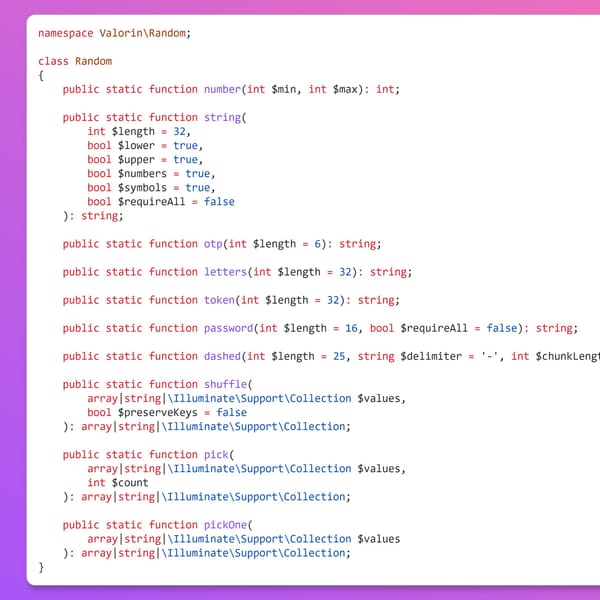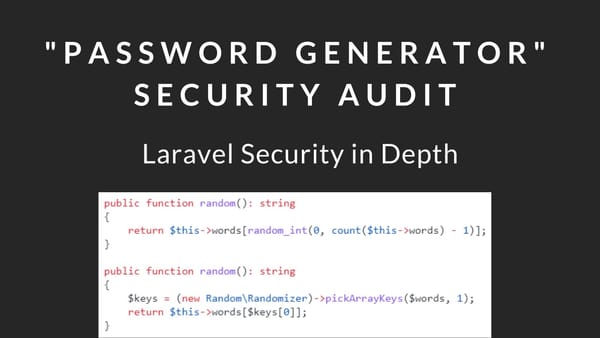
In Depth
In Depth: Introducing Random
[InDepth#22] Random generates cryptographically secure random values in a range of different formats through a simple helper package for PHP.

In Depth
[InDepth#22] Random generates cryptographically secure random values in a range of different formats through a simple helper package for PHP.

Security Tips
[Tip#65] Before you reach for a hashing function, stop and think about what you're hashing and why you're hashing it...

Security Tips
[Tip#55] Let's look at my old buddy time(), who always has something for me during my audits. This time it's helping avoid filename collisions?

In Depth
[InDepth#16] According to random folks on the internet (i.e. social media), "insecure functions" are a wide and varied concept. Let's take a look at the common themes across the different ideas...

Newsletter
[InDepth#14] Cryptographically secure randomness is important, but so is backwards compatibility...

Security Tips
[Tip#37] If you need to generate passwords in your app, it's important to use a cryptographically secure algorithm. Laravel makes this easy by giving us the Str::password() helper!

In Depth
[InDepth#12] In November 2022, Steve McDougall published a tutorial called "Creating a Password Generator"... we're going to audit his code!

In Depth
[InDepth#10] One time codes, magic links, and more...

Security Tips
[Tip#19] Because all randomness should be cryptographically secure.